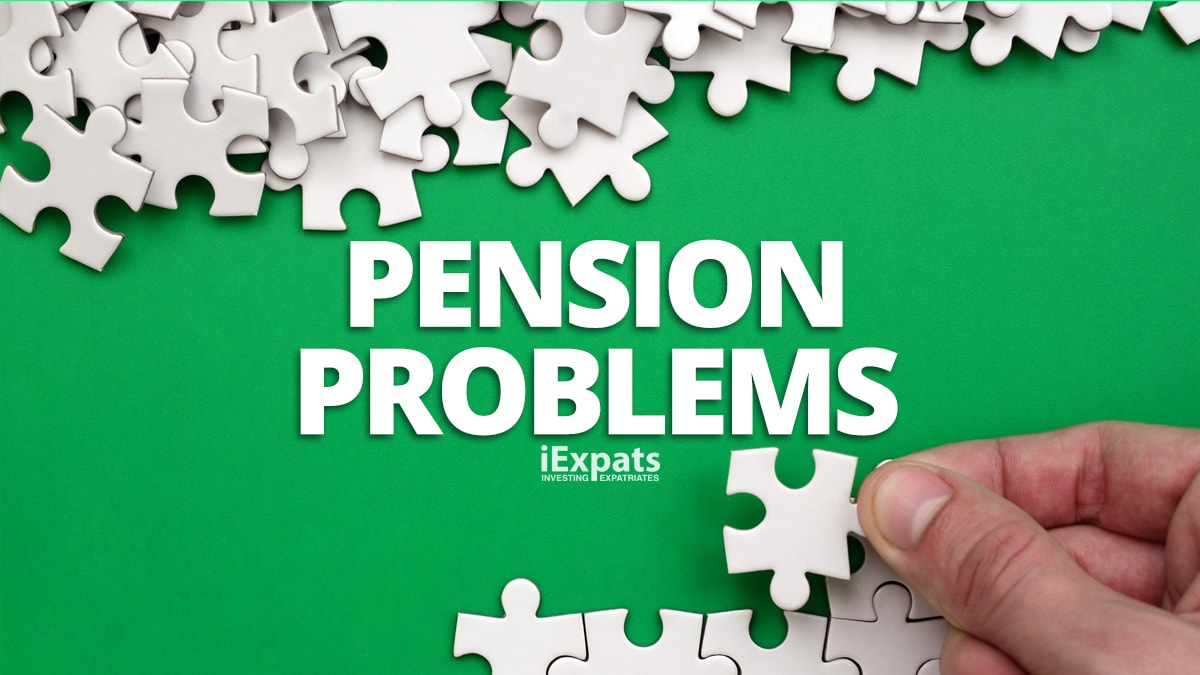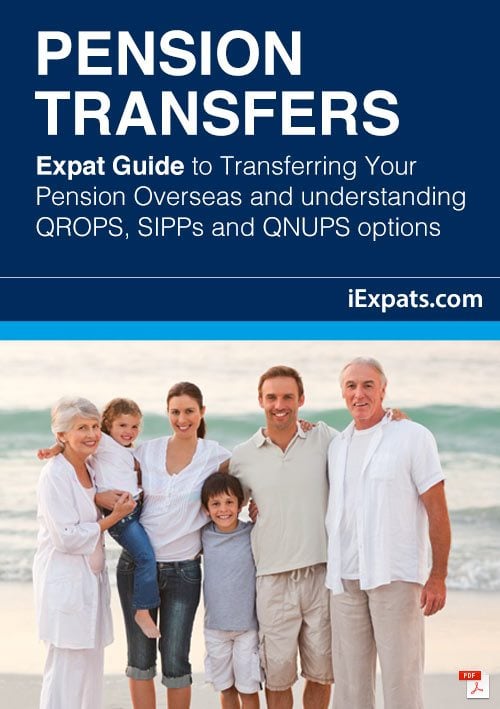As an expat, you probably dream of retiring early, but how do you know how much cash you need to give up work for good?
If you are careful with money, living and working in Dubai gives your plans a boost as salaries are high and tax non-existent.
But you can only guess at how many retirement years you need to finance out of your savings and investments.
The only way to ease the journey is to start saving and investing as soon as you can with the hope your cash stash is big enough to cover a comfortable lifestyle in your later years.
And the main way to save for retirement is a pension.
Things are not always that smooth for expats, living an international lifestyle in a world with strict financial and tax borders can make pension saving expensive and fraught with problems.
Pension problems expats need to solve
A mobile lifestyle flitting between assignments on different continents may be your ideal job but complicates saving into a pension.
Pensions tend to be anchored to a specific country, so when moving, expats must freeze or move their pensions as well, which can eat up the pot with early access and other fees.
The solution many look for is an offshore or international pension that stays in one place while they can move when and where they want.
Lots of providers are keen to fill this void, leaving a range of sometimes confusing options that are best investigated with the help of a professional international financial adviser.
Pensions are generally straightforward ways to save for retirement – the risk often comes with how the pot is invested.
The headlines are busy with tales of looted pensions, scams and toxic alternative investments that should serve as warning to expats seeking the highest returns.
How Pensions Work In the Gulf
Expats in Dubai and the UAE have no state-run pension scheme but can start a local or international personal scheme.
Instead of paying into a pension, employers award an end-of-contract gratuity based on a part of annual salary for each year in the job.
Similar arrangements apply in other Gulf States, like Saudi Arabia and Kuwait.
Pension Problems For Expats
Expats who fall into the low to middle-income group fare the worst when planning for retirement as they face several saving obstacles.
- Any spare money that could go into a pension often vies with the spending needs of a young family.
- Many expats from outside Europe have a cultural responsibility to provide for their wider families, which can come to a significant sum each month
- Lower paid expat jobs tend to come with shorter contracts, adding the risk of paying penalties to stop or transfer the pension
- When expats move, their tax obligation moves with them and the transferred arrangements might not give the expected outcome
Buying a pension
You need to know what you are doing if you buy an ojj-the-shelf pension.
It’s important to watch for differences between the schemes and rules that may trigger charges.
The best way to find a whole-of-the-market IFA who can tailor a pension plan that suits your personal financial needs and goals.
A whole-of-the-market adviser should select a short-list of the best options, including offshore pensions, and explain the pros and cons of each.
This kind of advice is unlikely to come free.
Offshore Pensions For Expats
Scores of banks and insurance countries market offshore pensions for expats.
The issue with these pensions is they are not portable, so don’t move when the expat moves to another financial jurisdiction.
Sorting out tax residence is important for expats starting to save for retirement. Residence rules determine the country where someone lives, which then signals where they pay tax and any reliefs and allowances, they get.
This can make a big difference to the type of pension an expat needs and making the wrong decision about residence can knock-on to tax issues.
For example, many pensions products offer tax-free fund growth and a zero-tax lump sum drawdown on retirement. Because these pensions are often trusts, some countries may treat them as other types of investment and tax fund growth.
Some places have based their economies on offering tax-efficient offshore pensions and investments, such as the Channel Islands and the Isle of Man.
Isle of Man pensions tend to be innovative and portable as well as financially low risk due to tight regulation.
Offshore pension risks for expats
Expats need to have a clear financial plan so they can consider the tax implications on the money they earn and invest.
Working out residence is one of the most important, but other factors are involved with starting an offshore pension. The main ones are:
Currency concerns
Most offshore pensions are linked to hard currencies, like the Pound, US dollar or Euro. If the expat lives in a softer currency country, contributions become more expensive as the exchange rate favours the stronger currency. Find out more about currency exchange for expats.
No guarantees
Offshore pension returns are based on the fund value rather than a final salary pension with annual cost of living increases. That means retirement income can fluctuate with the fund value making day-to-day budgeting difficult.
Tax Relief Makes Pensions So Important
One of the main benefits of a pension is tax-efficient saving – which translate as tax relief on contributions to encourage saving, tax-free growth of the fund and a tax-free lump sum on maturity.
Regular saving over your working life allows the fund to benefit from compound interest.
ON retirement, the fund gives a tax-free lump sum of up to 30% of the value of the pot and a taxable income for life.
Many UK-modelled pensions allow access to the fund from the age of 55, even if you carry on working into your 60s.
However, any further drawdowns or income are taxed according to the rules in the country where you live.
QROPS Pensions For Expats And Foreign Workers
One of the most popular pensions for British expats or foreign workers with UK pension savings is a QROPS.
QROPS stands for the Qualifying Recognised Overseas Pension Scheme, which is supervised by the UK HM revenue & Customs.
QROPS offer multiple benefits such as currency, investment flexibility and other tax advantages to some expats.
The scheme rules are SIPP based, so the pension saver has control of how the fund is invested and can choose between managed and self-managed options.
QROPS are widely available to expats in Europe and around a dozen other countries, like Australia, Canada, and the US.
If you are unlucky enough to live in a country without a QROPS provider, the choice is closed as a tax of 25% of the transferred fund value is triggered by switching the money offshore under a QROPS overseas transfer charge.
QROPS are not subject to the UK lifetime allowance and annual contributions caps
International SIPPs
International SIPPs run to a set of similar rules to QROPS.
The big difference is a SIPP – a self-invested personal pension – is not constrained to countries which have QROPS providers.
No overseas transfer charge applies, so savers in any country can take one out.
Many overseas employers offer international SIPPs. If an expat with savings in the scheme leaves the employer or moves to another country, the funds remain held overseas.
UK SIPPs are also subject to rule changes imposed by the government and saving limits that cap lifetime funds at £1.074 million and annual contributions to £40,000 including tax relief.
International SIPPs based offshore are outside of the UK rules.
Pension Planning Checklist
Understanding your retirement income options early enough to ensure you are saving enough to give up work when you want without sacrificing your finances is vital.
Pension income generally has three strands – a state pension, savings into workplace schemes and any personal pension savings.
Due to the way expats tend to move jobs and countries quite often, tracking the final finish can be a problem.
That’s why professional independent advice that considers all the alternatives is important.
Here’s some points to discuss with your IFA:
- Make sure lifestyle features like stopping, starting, or changing payments are built-in to your pension
- Check out the currency options – moving exchange rates can make a big difference to the value of the income your pot pays on retirement
- Facilities to pay in occasional lump sums are useful
- Smooth tax wrinkles between the country where you pension is based and where you live and intend to live on retirement
- Find out who gets your money if you die before the pension matures
- Don’t forget to ask about fees and charges for set-up and administration as high charges can impact the value of the final fund
- Ignore fanciful high-return alternative investments – you stand to risk losing your money
Pension Problems Faced by Expats FAQ
Saving for retirement with a pension is not always plain sailing for expats.
Often the easiest route is to work alongside an independent financial adviser.
For more details about how to choose the right international expat financial adviser, check out our exclusive guide.
If you have some queries about pension problems for expats, look through our answers to the most asked questions:
Yes. Once paid the gratuity is yours with no strings attached. Many QROPS and other international pensions and investments understand expats are paid lump-sums and structure their products to accept one-ff contributions.
However, a financial adviser may argue that drip-feeding the money in small amounts may offer a better way to invest.
Expats pay tax according to the rules of the country where they have their main home.
QROPS are complex and providers will want to see you have discussed your retirement planning with an IFA. Your IFA should have the information you need about QROPS at their fingertips. If not, 28 countries currently host QROPS and the latest list is published every two weeks by HMRC.
Yes, unless you are in a government-backed scheme, like the armed forces, police, teachers, nurses, doctors, public workers, or civil servants. The state pension also falls outside the QROPS remit.
No. You can live anywhere, but if your tax residence moves outside the UK, then the tax breaks like relief on contributions are lost.
Expats can start taking money from many QROPS or SIPPs from the age of 55. The payment age does vary between providers and countries, so don’t assume every pension offers the same options.
Whether you should join or not depends on a lot of personal factors, like how long you will stay in your job, if you stay in the same country and your tax and residence status. These are questions best answered by an independent financial adviser.
Yes, this is allowed providing the transferring scheme is not a UK government state, public sector, or civil service pension.
Transferring out of a Swiss pension is possible but depends on where you live and the type of Swiss pension that holds the cash.
Related Information
Below is a list of related articles you may find of interest.

